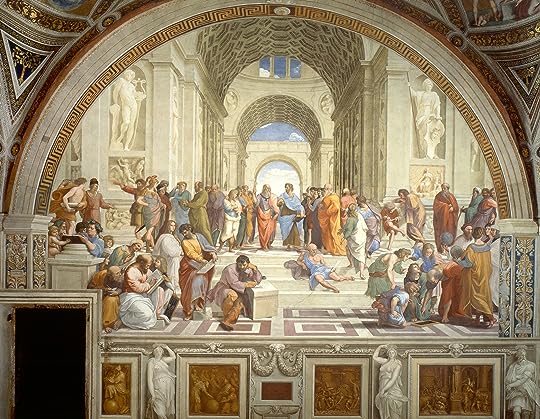What do you think?
Rate this book


329 pages, Paperback
First published January 1, 351


Por consiguiente es acertado decir que el hombre se hace justo por realizar acciones justas y templado por realizarlas templadas; y también que como consecuencia de no realizar éstas nadie podría ni siquiera estar en disposición de ser bueno. Sin embargo, la mayoría no llevan esto a la práctica, sino que se refugian en la teoría y creen que son filósofos y que así van a ser virtuosos, obrando de manera parecida a los enfermos que escuchan atentamente a los médicos, pero no hacen nada de lo que se les prescribe. Pues bien, lo mismo que éstos no van a estar bien con el cuerpo si reciben este tratamiento, tampoco aquéllos van a estar bien de alma si filosofan de esta manera.
Por ejemplo: los hombres se hacen constructores construyendo y citaristas tocando la cítara. Pues bien, de esta manera nos hacemos justos realizando acciones justas y valientes.
E igualmente las bebidas y los alimentos acaban con la salud, si se producen en exceso o defecto, mientras que sin equilibrados la crean, la aumentan y la conservan. Pues bien, de esta manera sucede también con la templanza, la valentía y las demás virtudes. El que lo rehúye todo y es temeroso y no aguan nada se hace cobarde; y el que no teme nada en absoluto, sino que se enfrenta a todo, es temerario.
Pero si la felicidad es actividad conforme a virtud, es lógico que lo sea conforme a la más importante: y ésta sería de lo más excelente. Pues bien, ya sea esto el intelecto o cualquier otra cosa que, en verdad, parece por naturaleza gobernar y conducir y tener conocimiento acerca de las cosas buenas y divinas, [...] la actividad de esto conforme a su virtud propia sería la felicidad perfecta. Y ya se ha dicho que ella es apta para la contemplación.